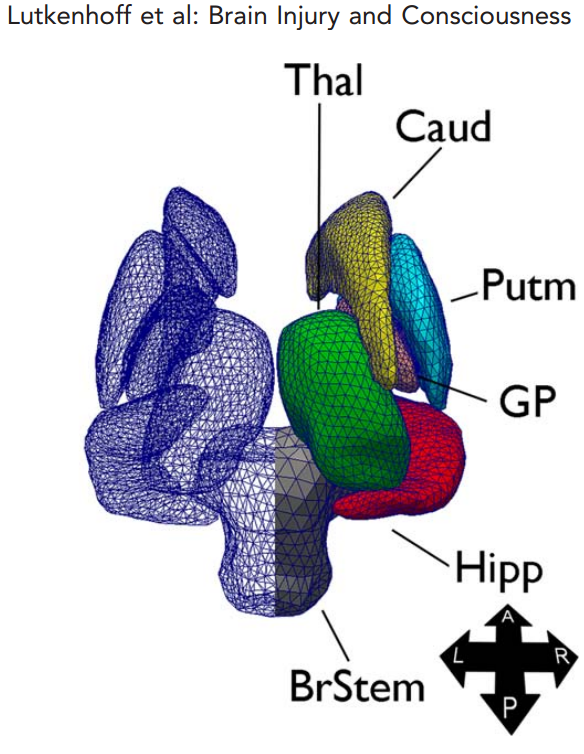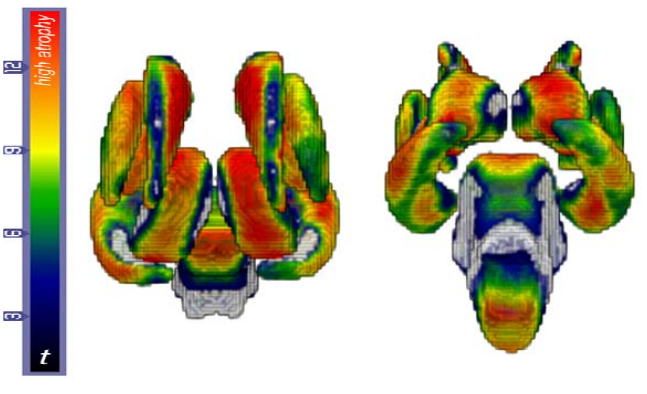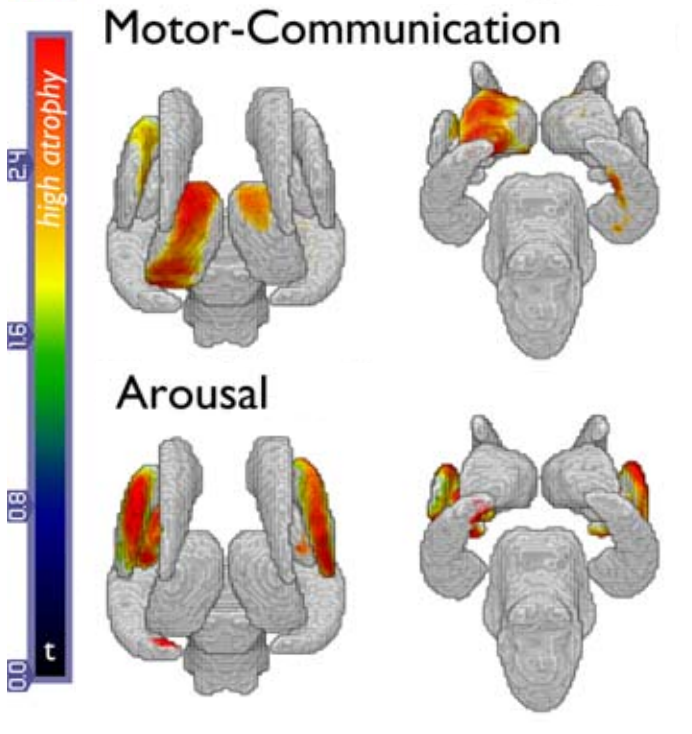We congratulate Micah Johnson (GS 2nd) for being awarded a prestigious NSF graduate fellowship!
Tag: MontiLab
Prof Monti interviewed on study about brain death critera
Latest interview to Prof Monti on the topic of brain death and its criteria:
New publication in Annals of Neurology (IF: 11.9): Thalamic and extra-thalamic mechanisms of consciousness after severe brain injury
Lutkenhoff E.S., Chiang J., Tshibanda L., Kamau E., Kirsch M., Pickard J.D., Owen A.M., Monti M.M. (2015) Thalamic and extra-thalamic mechanisms of consciousness after severe brain injury. Annals of Neurology. [ePub ahead of print].
Traditionally the thalamo-cortical axis is believed to be crucial for the maintenance/recovery of consciousness after brain injury as well as cortical/behavioral arousal. Evan Lutkenhoff (MontiLab post-doc) shows, in a paper now in press in Annals of Neurology, that while the degree of thalamic atrophy is proportional to a patient’s inability to produce voluntary behavior and communicate, the impairment in arousal is unrelated to thalamic atrophy. Rather, level of arousal was connected to the degree of atorphy within the basal ganglia (putamen/globus pallidus).
 Atrophy in Patients as compared to Healthy Volunteers
Atrophy in Patients as compared to Healthy Volunteers

Atrophy correlating with clinical scores of motor behavior/communication and arousal

New Publication in Neurology (IF: 8.3; with editorial): Thalamo-frontal connectivity mediates top-down cognitive functions in disorders of consciousness
A new MontiLab paper published in Neurology (IF: 8.3) demonstrating the importance of thalamo-frontal connectivity in cognitive function for patients with Disorders of Consciousness.
Monti M.M., Rosenberg M., Finoia P., Kamau E., Pickard J.D., Owen A.M. (2015) Thalamo-frontal connectivity mediates top-down cognitive functions in disorders of consciousness. Neurology, 85:1-7. [Pub ahead of print].
See also the accompanying Editorial by S. Goldman and N. Schiff.
MontiLab grant funded by the Dana Foundation
The Dana Foundation, through its Clinical Neuroscience Research program, has agreed to fund over the course of 3 years the project “Filling the treatment gap: Ultrasonic thalamic stimulation in disorders of consciousness following severe brain injury.“
(Link shortly to follow)
2 Montilab grad students awarded NSF graduate fellowship
Amy Zheng (GS 2nd year) and John Dell’Italia (GS 2nd year) have been awarded — last year and this year, respectively — an NSF Graduate Fellowship.
Congratulations!
